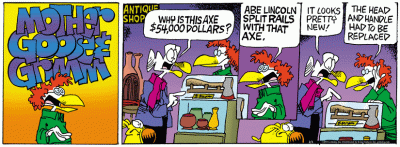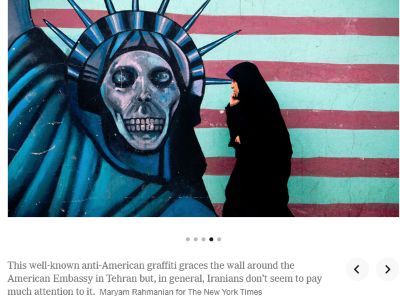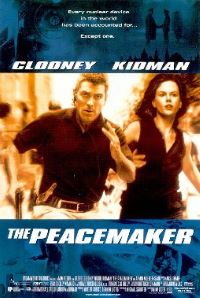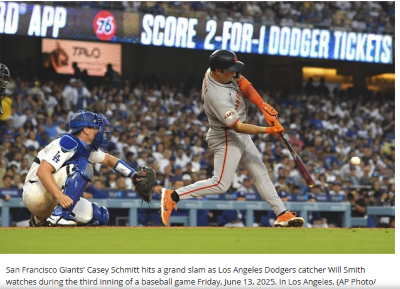
This blog represents another in a series reporting on the sessions at history-related conferences. Sometimes I am able to attend such conferences, sometimes I am not. The OAH is one I did not attend. Unfortunately the online program does not include abstracts as the National Council on Public History (see conference report). It would be nice if all conference abstracts were posted online.
The first blog on the OAH conference addressed content sessions. The second blog below encompasses outreach and education by history organizations. Once again, these sessions provide an example of what is being discussed and may offer suggestions for sessions at local, state, and regional conferences.
Many of these content sessions are on early American history. That may be a reflection of my own personal interests. If you are interested in reviewing all the sessions at the conference go to
https://www.oah.org/meetings-events/oah19/
WHAT CAN COLLEGES DO?
Here is a session that should be possible at any statewide or regional history conference. After all, where aren’t there two and four-year colleges? Note the mention of engaging the local community in the description. One item not mentioned but critical to the success of these endeavors is the state curriculum: are local and state history an integral part of the school curriculum or an option at the discretion of the individual teacher? If the former is true, then that would necessitate changes to teacher certification programs and therefore to the classes offered at colleges. If the latter is true then the odds are we have the current situation where teachers have to go outside the norm to bring local and state history into the classroom or to be able to visit the related sites outside the classroom.
Outside Support: Creating and Maintaining Community Outreach and Engagement Endorsed by the Western History Association
This roundtable discussion examines how both two and four-year institutions of higher learning embraced their local communities through program partnerships, shared course objectives, and assignment of specific programming. The participants recognized the importance of including their local communities in history education and provide practical hands-on learning experiences for their students. The discussion’s goal is to share their insight into the ways each of them have incorporated local communities into their student learning objectives, as well as learning from audience members their own best practices and community involvement experiences.
Chair and Panelist: Marc Dluger, Northern Virginia Community College
Panelists:
Katherine Macica, Loyola University Chicago
Stella Ress, University of Southern Indiana
Adam Shprintzen, Marywood University
Kacey Young, Northern Virginia Community College
WHAT CAN SCHOLARS DO?
This session addresses the issue of the risks involved when scholars and the public interact at history sites and museums. One of the presenters was Marla Miller, the president of the NCPH. She was one of the co-authors of the NPS-commissioned study on “Imperiled Promise” which documented the shortcomings in current NPS practices in history. That report was the subject of a series of blogs here. In the current political atmosphere, the odds on the NPS implementing any of the recommendations are non-existent. My impression from the brief description of this session is that great care needs to be taken when engaging the local community in a discussion that risks changing the accepted narrative.
Collaborations and Contestations: At Intersections of Early American and Public History
Solicited by the Society for Historians of the Early American Republic (SHEAR)
This roundtable explores the importance of various forms and sites of public history to scholarship on early North America, and vice versa, particularly around the theme of inclusivity. Marla Miller explores what museums and historic sites are doing to operate with a more inclusive lens, while Tiya Miles reflects on the collaborative research process that shaped her recent book, and the community conversations following its publication. Barbara Clark Smith considers the potential downsides of public practice, pondering contemporary misrepresentations of the past by groups not structurally marginalized. And Brian Murphy weighs the impulse to trace through-lines and illuminate current conditions against the imperative to explore the past on its own terms.
Chair: Serena Zabin, Carleton College
Panelists:
Barbara Clark Smith, National Museum of American History
Tiya Miles, University of Michigan
Marla Miller, UMass Amherst
Brian Murphy, Baruch College, City University of New York
CULTURAL VALUES AND HISTORY MUSEUMS
These sessions relate to current issues in the presentation of history to the public. Given the cultural wars, what should history museums do when they are connected to events and people who are the source of contention in the world today? One such topic in this quadricentennial year of slavery in what became the United States is freedom. It did not apply to everyone here.
Fluidity in Freedom: African Americans in Colonial and Revolutionary America
No pre-registration required
A crucial feature of the American character—the notion of freedom—is so entrenched in the cultural and national consciousness that the evolution of this notion is often taken for granted. Students of history miss a foundational understanding of the American value of freedom when they are unaware of how it has been transformed, defined and expanded by agents of history. Join education staff from the National Museum of African American History and Culture to investigate the fluidity of freedom in the colonial and revolutionary periods through the material culture and legal history of people of African descent who utilized the courts to claim the freedom they believed was due to them. Using the stories of individuals such as Elizabeth Freeman (Mum Bett), Quock Walker and Rachel Findlay, we will explore the arguments for universal freedom, the development of race as a factor in freedom and the role of the legal system in expanding the concept of freedom. Designed for educators of grades 3–12, this workshop will enhance content knowledge, provide resources for the classroom and open a discussion about the nature of freedom and race in the fledgling United States.
Chair and Presenter: Candra Flanagan, National Museum of African American History and Culture, Smithsonian Institution.
Another sensitive subject is religion. The following session does not address the issue of religion in general but in specific case studies. In this regard, it would be beneficial to have an abstract from Randall Miller as his presentation on religion at national sites also would apply to state and local sites and museums.
“Faith in Public”: Interpreting Religion at American History Museums and Historic Sites
Endorsed by the OAH Committee on National Park Service Collaboration, the Society for U.S. Intellectual History (S-USIH), and the Western History Association
Chair: Laura Chmielewski, State University of New York at Purchase
Commentator: Edward Linenthal, Indiana University
Overcoming Barriers to Interpreting Religion Barbara Franco, Independent scholar
Interpreting “America’s Pastor”: Evangelicalism, Public Commemoration, and the Many Meanings of Billy Graham Devin Manzullo-Thomas, Messiah College
The Gods Are Not All around Us: Finding Religion at National Public History Sites and Museums Randall Miller, Saint Joseph’s University
TRAINING HISTORY STAFF IN HISTORY
One of the critical points in the Imperiled Promises study previously mentioned was the training or lack thereof for the history staff at the NPS. In my blogs, I always noted that the same considerations also applied to state people at state historic sites. A simple example is attendance – are these people even able to attend history conferences in their own state or region? This session focuses on the training of government historians as historians. People are most familiar with the government staff who directly meets with the public, that is, gives the tours. What about the people behind the scenes who prepare the material on which the tours and exhibits are based? What training do they receive? How do they stay current with the history field? Are there even historians on staff in state organizations?
HISTORY AND GOVERNMENT HISTORY STAFF
NPS 101: Historical Research and Writing for the National Park Service
Solicited by the OAH Committee on National Park Service Collaboration
Historians from the National Park Service and historians with experience preparing studies for NPS will introduce the major types of NPS historical studies and explore how these documents are both similar to, and different from, each other and from historical monographs and articles intended for scholarly journals. Panelists will discuss project planning, methodologies, audience, expectations, the review process, and the characteristics of a strong and useful study. On the occasion of the 25th anniversary of the cooperative agreement between the OAH and NPS, this session will illuminate the challenges and rewards of collaborations between historians within and outside the National Park Service to produce studies that contribute to the preservation and interpretation of historic buildings and landscapes.
Chair: Susan Ferentinos, Independent historian
Panelists:
Evelyn Causey, Independent historian
Douglas Sheflin, Colorado State University
Ron Cockrell, National Park Service, Midwest Regional Office
Bethany Serafine, National Park Service, Northeast Region
THE 250TH BIRTHDAY OF AN EXPERIMENT
The founders of this country regarded it as an experiment. They knew what had happened to the Greek city–states and to the Roman Republic. They were aware of the great size of the proposed United States America: it dwarfed any previous such attempt at a republic. They also were aware of the great diversity of peoples who comprised the country, a diversity of a magnitude far beyond that of the ancient city-state republics. What is easy to forget is that they genuinely did not know if the experiment would work. For John Adams and Thomas Jefferson, who both died on July 4, 1826, the 50th anniversary of their handiwork, the continued existence of the United States was miracle enough. Imagine how they would have felt if they knew the country could reach its 250th birthday still intact. At this moment efforts are underway to begin to prepare for the 250th anniversary. We already had and are having events from the 1760s that reached 250 years. In 2020, additional events will come of that age. The 250th provides an opportunity for the United States to become a country of We the People where all its citizens remember and celebrate the birth of their country. Will that happen?
THE AMERICAN REVOLUTION 250TH
Museum of the American Revolution
The American Revolution: Getting the Best New Scholarship to the Public and Guided Tour Solicited by the OAH Committee on Teaching
The past decade has seen a flourishing of historical scholarship related to the era of the American Revolution. This panel examines how to share this new scholarship with the public through museums and high school classrooms. The participants—professors, museum professionals, and teachers—will discuss the challenges and opportunities of incorporating cutting-edge scholarship. The panel will take place at the Museum of the American Revolution in Philadelphia and will incorporate a tour of the museum which will enhance the conversation. Advance registration and a fee are required for the tour and session.
Chair: Andrew Shankman, Rutgers University–Camden Panelists:
Zara Anishanslin, University of Delaware
Kathleen DuVal, University of North Carolina at Chapel Hill
Philip Mead, Museum of the American Revolution
Thomas McGuire, Teacher, Malvern Prepatory School
Jessica Roney, Temple University
This concludes the review of the recent NCPH and OAH conferences. Again, it would be useful if conferences would include the abstracts of the presentations on the conference website. It would also be useful if there could conference reports on sessions of interest. I refer here not simply to the hot-button topics but to the sessions related to k-12 education, history museums, and history training that are important to the people who teach in our schools and colleges and who work at our museums be they privately owned or public. Perhaps some of these conference sessions can be replicated at the state and/or regional level.






One thought on “Community Outreach: Lessons from the Organization of American History (OAH) Conference”
Comments are closed.